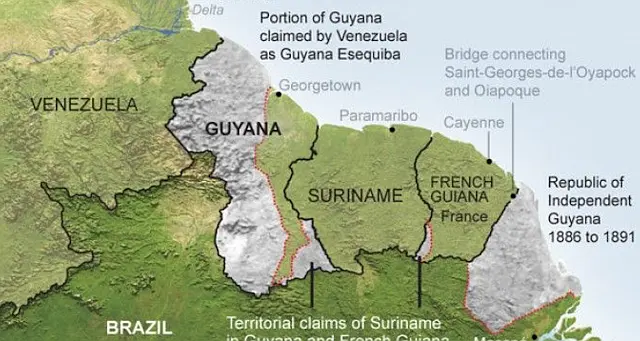Yesterday, Venezuela’s government rejected the 1899 Paris Arbitral Award.
It resolved a border dispute between Venezuela and British Guiana, granting most of the contested territory to British Guiana.
Foreign Minister Yván Gil announced, “Our commitment to defend our land remains strong on this flawed verdict’s 124th anniversary.”
The official statement came from Caracas today. It repeated the nation’s enduring opposition to this Paris decision, calling it a sham.
It said the award violates international rules.
According to Venezuela, this award resulted from a secret deal between the US and the UK. They aimed to undermine Venezuela’s sovereignty.
“The UK and US finalized this flawed award under force threats,” the government noted.
In the current scenario, tensions between Venezuela and Guyana are escalating.

However, Venezuela states that the only valid pact is the 1966 Geneva Agreement, signed by both.
The statement adds the UK eventually acknowledged the 1966 Geneva deal. At that point, responsibility shifted to Guyana as a new republic.
“Guyana must respect the Geneva pact as the sole binding accord,” the government insists.
Lastly, Venezuela highlighted that direct talks are the only solution. Both parties must engage as the 1966 Geneva Agreement dictates.
Background
This recent move by Venezuela adds a layer of complexity to its relations not just with Guyana but also with Western powers.
From a regional perspective, the territorial dispute is an enduring issue among South American nations.
Moreover, the ongoing international alignment against Venezuela could interpret this as aggressive, escalating already high tensions.
Globally, territorial disputes are not uncommon. Take China’s claims in the South China Sea, for instance.
Similarly, Russia’s annexation of Crimea also sparked international uproar. Yet, these issues often drag on for years without resolution.
Venezuela’s firm stance might not see quick reciprocation or resolution. It’s a long path from stating claims to settling them.
In this geopolitical climate, as suggested by the 1966 Geneva Agreement, a diplomatic solution remains the most prudent course of action for all parties.

